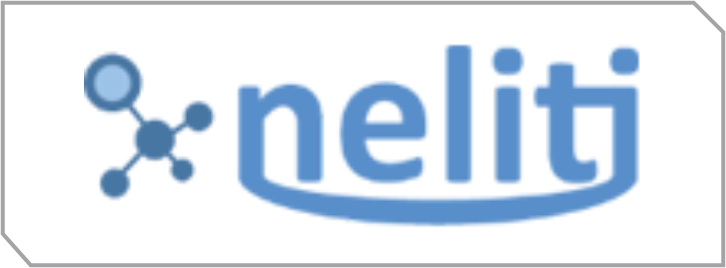Danantara in the Light of Legal Theories: A Normative Assessment of Indonesia’s Sovereign Wealth Fund
DOI:
https://doi.org/10.53748/jbms.v5i1.116Keywords:
Sovereign Wealth Fund (SWF), Legal Positivism, Natural Law, Rule of Law, Critical Legal Studies, Good Governance TheoryAbstract
The purpose of this study is to analyze the legal, ethical, and institutional dimensions of Danantara, Indonesia’s newly launched Sovereign Wealth Fund (SWF), using a multidimensional legal theoretical framework. This paper examines how the establishment of Danantara aligns with or deviates from core legal theories, and explores its implications for governance and public legitimacy. This study employs a qualitative, normative legal research method using a doctrinal approach. Primary and secondary legal sources were analyzed, including government regulations, official reports, academic literature, and media commentaries. The analytical framework is built upon five legal theories: Legal Positivism, Natural Law, Rule of Law, Critical Legal Studies, and Good Governance Theory. The findings show that while Danantara fulfills the requirements of formal legality, it suffers from a lack of societal legitimacy and accountability due to governance opacity, politically affiliated leadership, and absence of independent oversight. These issues highlight inconsistencies with ethical standards and democratic values promoted by the selected legal theories. This paper provides a unique comparative analysis of Danantara by integrating five major legal theories into a single analytical framework—an approach rarely applied to sovereign wealth funds. It contributes to legal scholarship by revealing how formal legal instruments may reproduce structural inequality and democratic deficits if not grounded in ethical and participatory principles.
Downloads
References
Ali Safa’at, M., & Istiqomah, M. (2022). Critical Legal Studies (Cls): an Alternative for Critical Legal Thinking in Indonesia. Petita: Jurnal Kajian Ilmu Hukum Dan Syariah, 7(1), 11–20. https://doi.org/10.22373/petita.v7i1.122
Arsad, R. (2023). Realizing good governance in governance through law enforcement anddemocracy. Central European Management Journal, 31(2), 1249–1253.
Bangsa, B. M., & Noor, R. (2025). Governance risks plague Indonesia’s new sovereign wealth fund. East Asia Forum. https://eastasiaforum.org/2025/04/08/governance-risks-plague-indonesias-new-sovereign-wealth-fund/
Danardono, D. (2015). Critical Legal Studies: Posisi Teori dan Kritik. Kisi Hukum, 14(1), 2.
Gadjong, A. A. (2011). Basic Concept of Positivism in the Development of Legal Studies. In Indonesian Journal of International Law (Vol. 8, Issue 2). https://doi.org/10.17304/ijil.vol8.2.9
Hart, H. L. A. (2017). Positivism and the separation of law and moral. Law and Morality, 71, 63–99. https://doi.org/10.47772/ijriss.2023.7011096
Investor Relations Unit. (2025). OJK Supports the Launch of BPI Danantara. OJK International Information Hub. https://iru.ojk.go.id/iru/news/detailnews/13467/ojk-supports-the-launch-of-bpi-danantara
Johnston, M. (2006). Good Governance: Rule of law, transparency, and accountability. United Nations Public Administration Network, 1–32.
Natural Law Theory: A Philosophical and Theological Divide Between Believers in Objective Moral Order and Skeptics. (2024). October. https://doi.org/10.13140/RG.2.2.35487.57764
Nik Mahmod, N. A. K. (2013). Good Governance and the Rule of Law. UUM Journal of Legal Studies, 4, 45–55. https://doi.org/10.32890/uumjls.4.2013.4559
Office of Assistant to Deputy Cabinet Secretary for State Documents. (2025). President Prabowo Launches Danantara for Sustainable Investment Management. Cabinet Secretariat of The Republic of Indonesia.
https://setkab.go.id/en/president-prabowo-launches-danantara-for-sustainable-investment-management/
Quddus, U., & Khong, D. W. K. (2023). Six core values in natural law as a common concern for human development. Cogent Social Sciences, 9(1). https://doi.org/10.1080/23311886.2023.2225828
Rahmatullah, I. (2021). Filsafat Hukum Aliran Studi Hukum Kritis (Critical Legal Studies); Konsep dan Aktualisasinya Dalam Hukum Indonesia. Adalah, 5(3), 1–10. https://doi.org/10.15408/adalah.v5i3.21393
Safa’at, M. A. (2001). Gerakan Studi Hukum Kritis (Critical Legal Studies Movement). 1–29.
Shea, M. (2024). Value Comparability in Natural Law Ethics: A Defense. Journal of Value Inquiry, 58(3), 383–402. https://doi.org/10.1007/s10790-022-09895-5
Sheng, Y. K. (2000). What is Good Governance? United Nations Economic and Social Commission for Asia and the Pacific, 69–70. https://doi.org/10.18356/d4072237-en-fr
Shira, D. (2025). Indonesia Officially Launches New Sovereign Wealth Fund Danantara. ASEAN Briefing. https://www.aseanbriefing.com/news/indonesia-officially-launches-new-sovereign-wealth-fund-danantara/
Strategic, T. (2024). Unclear legal basis of Danantara undermines investor trust. The Jakarta Post. https://www.thejakartapost.com/business/2024/12/27/unclear-legal-basis-of-danantara-undermines-investor-trust.html
Teacher, L. (2021). Dicey and the Rule of Law. Lawteacher.Net. https://www.lawteacher.net/free-law-essays/constitutional-law/dicey-rule-of-law-8355.php
Wijayawati, S. G. (2023). Rue of Law in the Eyes of European. Juris Gentium Law Review, 9(September), 46–69.
Zalta, E. N., Nodelman, U., Allen, C., & Anderson, R. L. (2019). Legal Positivism. Stanford Encyclopedia of Philosophy.
Zalta, E. N., Nodelman, U., Allen, C., & Lawrence, P. R. (2019). The Natural Law Tradition in Ethics. Stanford Encyclopedia of Philosophy. https://leibniz.stanford.edu/friends/preview/natural-law-ethics/
Downloads
Published
How to Cite
Issue
Section
License
Copyright (c) 2025 Journal of Business, Management, and Social Studies

This work is licensed under a Creative Commons Attribution 4.0 International License.
Authors retain copyright and grant the journal right of first publication with the work simultaneously licensed under a Creative Commons Attribution 4.0 (CC 4.0) that allows others to share the work with an acknowledgment of the work's authorship and initial publication in this journal.


















